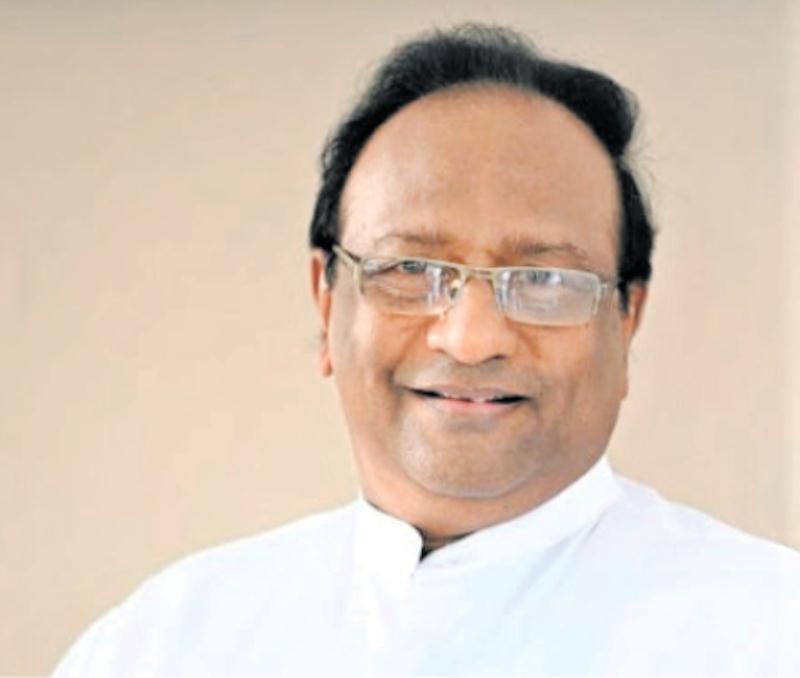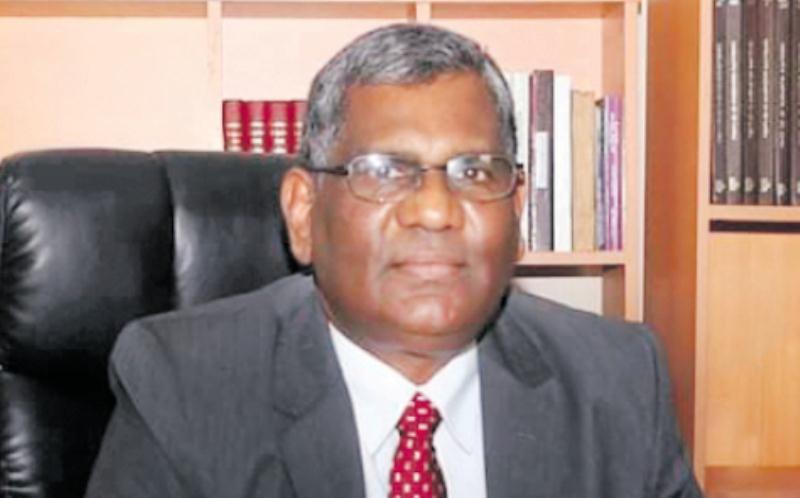Would the abolition of the provincial council (PC) system save billions of rupees for the country? Can the government officials run the country without the nine chief ministers and around 638 provincial councillors elected by the people in the respective provinces?
The answer is in the affirmative, according to Ministry of Public Services, Provincial Councils, and Local Government Secretary J.J. Rathnasiri. He said a massive amount of money was needed for the upkeep of the chief ministers, 45 ministers, and council members, and that the staff members of each PC could be retained if the system is run by the state officials under the direct guidance of the Central Government.

When asked about the funds that were saved by the Government over the past years in the provinces where the terms expired, he said that while the amount was not calculated yet, he witnessed a massive reduction compared to the previous level of expenditure.
“The chief ministry office of a PC has 15 staff members, and a chief minister is entitled to all privileges enjoyed by a cabinet minister including vehicle permits. In addition, there are also ministers and council members and their staff members, and they are entitled to a salary and other allowances. When the system is only run by the staff members, this additional expenditure could be saved,” Rathnasiri explained.
Furthermore, he noted that the Government hadn’t taken a decision yet on whether to hold the PC election, and thereby hadn’t discussed a date for the same either.
No effect on expenses?
Meanwhile, election monitors claim the Central Government can’t avoid the expenses incurred through the PCs once the system is abolished.
Speaking to
The Sunday Morning, Centre for Monitoring Election Violence (CMEV) National Co-ordinator Manjula Gajanayake stressed that irrespective of whether the PC system is in place or not, the Government would have to bear the capital and recurrent expenditure of the PCs.
“For health, education, infrastructure, and others, the Government will have to spend, and it cannot shy away from the responsibility of maintaining these councils,” he stressed.
Stressing the importance of holding the PC elections, Gajanayake said that in Sri Lanka, no proper research was conducted by the Government to evaluate whether the system is good or bad.
“While those who live in the South might not need PCs, those who live in the faraway North and East need this system; they never said they didn’t want this system,” he continued.
“The main political parties use this system as a stepping stone to get into national mainstream politics, while the system also allows many women and young people to get into politics,” Gajanayake said, adding that even though almost all the parties use this system, they haven’t explored its full potential yet.

According to Ministry of Finance statistics, expenditure on PCs for 2017 was reported at Rs. 286,031 million.
This demonstrates an increase from the previous amount of Rs. 276,147 million for 2016. The average expenditure on PCs from December 1996 to 2017 was Rs. 103,769 million.
At present, all nine PCs are not functioning as their terms of office expired. The term of office of the Southern PC ended on 10 April; Western PC, 21 April; Sabaragamuwa PC, 26 September 2017; Eastern PC, 30 September 2017; North Central PC, 1 October 2017; Central, North Western, and Northern PCs, September 2018; and the term of office of the Uva PC ended on 8 September this year.
Speaking to
The Sunday Morning on an earlier occasion, State Minister of Provincial Councils and Local Government Affairs Sarath Weerasekara said: “A public discussion about the PC system is ongoing, while several organisations too proposed various options to change the present system introduced to the Constitution through the 13th Amendment.”
The State Minister stressed that the Government hadn’t yet taken any decision regarding the PC election.
 When asked about the funds that were saved by the Government over the past years in the provinces where the terms expired, he said that while the amount was not calculated yet, he witnessed a massive reduction compared to the previous level of expenditure.
“The chief ministry office of a PC has 15 staff members, and a chief minister is entitled to all privileges enjoyed by a cabinet minister including vehicle permits. In addition, there are also ministers and council members and their staff members, and they are entitled to a salary and other allowances. When the system is only run by the staff members, this additional expenditure could be saved,” Rathnasiri explained.
Furthermore, he noted that the Government hadn’t taken a decision yet on whether to hold the PC election, and thereby hadn’t discussed a date for the same either.
No effect on expenses?
Meanwhile, election monitors claim the Central Government can’t avoid the expenses incurred through the PCs once the system is abolished.
Speaking to The Sunday Morning, Centre for Monitoring Election Violence (CMEV) National Co-ordinator Manjula Gajanayake stressed that irrespective of whether the PC system is in place or not, the Government would have to bear the capital and recurrent expenditure of the PCs.
“For health, education, infrastructure, and others, the Government will have to spend, and it cannot shy away from the responsibility of maintaining these councils,” he stressed.
Stressing the importance of holding the PC elections, Gajanayake said that in Sri Lanka, no proper research was conducted by the Government to evaluate whether the system is good or bad.
“While those who live in the South might not need PCs, those who live in the faraway North and East need this system; they never said they didn’t want this system,” he continued.
“The main political parties use this system as a stepping stone to get into national mainstream politics, while the system also allows many women and young people to get into politics,” Gajanayake said, adding that even though almost all the parties use this system, they haven’t explored its full potential yet.
When asked about the funds that were saved by the Government over the past years in the provinces where the terms expired, he said that while the amount was not calculated yet, he witnessed a massive reduction compared to the previous level of expenditure.
“The chief ministry office of a PC has 15 staff members, and a chief minister is entitled to all privileges enjoyed by a cabinet minister including vehicle permits. In addition, there are also ministers and council members and their staff members, and they are entitled to a salary and other allowances. When the system is only run by the staff members, this additional expenditure could be saved,” Rathnasiri explained.
Furthermore, he noted that the Government hadn’t taken a decision yet on whether to hold the PC election, and thereby hadn’t discussed a date for the same either.
No effect on expenses?
Meanwhile, election monitors claim the Central Government can’t avoid the expenses incurred through the PCs once the system is abolished.
Speaking to The Sunday Morning, Centre for Monitoring Election Violence (CMEV) National Co-ordinator Manjula Gajanayake stressed that irrespective of whether the PC system is in place or not, the Government would have to bear the capital and recurrent expenditure of the PCs.
“For health, education, infrastructure, and others, the Government will have to spend, and it cannot shy away from the responsibility of maintaining these councils,” he stressed.
Stressing the importance of holding the PC elections, Gajanayake said that in Sri Lanka, no proper research was conducted by the Government to evaluate whether the system is good or bad.
“While those who live in the South might not need PCs, those who live in the faraway North and East need this system; they never said they didn’t want this system,” he continued.
“The main political parties use this system as a stepping stone to get into national mainstream politics, while the system also allows many women and young people to get into politics,” Gajanayake said, adding that even though almost all the parties use this system, they haven’t explored its full potential yet.
 According to Ministry of Finance statistics, expenditure on PCs for 2017 was reported at Rs. 286,031 million.
This demonstrates an increase from the previous amount of Rs. 276,147 million for 2016. The average expenditure on PCs from December 1996 to 2017 was Rs. 103,769 million.
At present, all nine PCs are not functioning as their terms of office expired. The term of office of the Southern PC ended on 10 April; Western PC, 21 April; Sabaragamuwa PC, 26 September 2017; Eastern PC, 30 September 2017; North Central PC, 1 October 2017; Central, North Western, and Northern PCs, September 2018; and the term of office of the Uva PC ended on 8 September this year.
Speaking to The Sunday Morning on an earlier occasion, State Minister of Provincial Councils and Local Government Affairs Sarath Weerasekara said: “A public discussion about the PC system is ongoing, while several organisations too proposed various options to change the present system introduced to the Constitution through the 13th Amendment.”
The State Minister stressed that the Government hadn’t yet taken any decision regarding the PC election.
According to Ministry of Finance statistics, expenditure on PCs for 2017 was reported at Rs. 286,031 million.
This demonstrates an increase from the previous amount of Rs. 276,147 million for 2016. The average expenditure on PCs from December 1996 to 2017 was Rs. 103,769 million.
At present, all nine PCs are not functioning as their terms of office expired. The term of office of the Southern PC ended on 10 April; Western PC, 21 April; Sabaragamuwa PC, 26 September 2017; Eastern PC, 30 September 2017; North Central PC, 1 October 2017; Central, North Western, and Northern PCs, September 2018; and the term of office of the Uva PC ended on 8 September this year.
Speaking to The Sunday Morning on an earlier occasion, State Minister of Provincial Councils and Local Government Affairs Sarath Weerasekara said: “A public discussion about the PC system is ongoing, while several organisations too proposed various options to change the present system introduced to the Constitution through the 13th Amendment.”
The State Minister stressed that the Government hadn’t yet taken any decision regarding the PC election.
